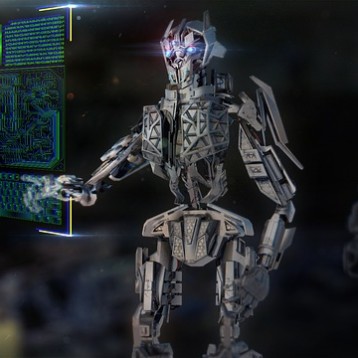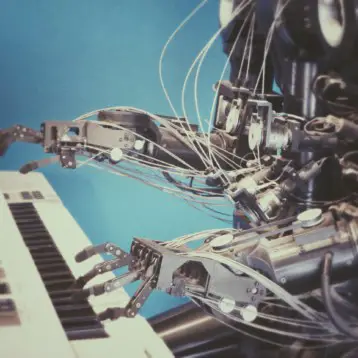If robots are to be truly integrated in humans’ everyday environment in order to provide services such as company, caregiving, entertainment, patient monitoring, and aids in therapy, it is expected that some adaptation to human behavior will be made. Otherwise, the changing human environments will require an everlasting reprogramming of the robots and users might complain about the lack of personalization. The Feelix Growing project tries to offer a solution to these problems in the form of robots that could empathize and understand human feelings.
The integration of these skills would require that, like children (but on a much shorter time-scale), robots develop embedded in the social environment in which they will fulfill their roles. The overall goal of this project is the interdisciplinary investigation of socially situated development from an integrated or global perspective.
In order to give the robot learning capabilities, artificial neural networks are used, which are suited to the varied and changing inputs that “perceptive” robots would be exposed to. Using cameras and sensors, the very simple robots being built by the researchers can detect different parameters such as a person’s facial expressions, voice, and proximity to determine emotional state. If someone shows fear or cries out in pain, the robot may learn to change its behavior to appear less threatening, such as backing away if necessary. If someone cries out in happiness, it may even detect the difference, and one day fine-tune its responses to individuals.
“It’s mostly behavioral and contact feedback; tactile feedback and emotional feedback through positive reinforcement, such as kind words, nice behavior or helping the robot do something if it is stuck,” explained project coordinator, Dr Lola Canamero.
TFOT has also covered the topic of robotic creativity which, according to Israel Beniaminy, might be humanity’s last stronghold. TFOT also covered S-bot, which is a manifestation of swarm intelligence, and the Swiss Wizkid, which is a part computer part robot “kid” with a desire to learn. Another related TFOT story is the Modular Transformer, which is modular robot capable of changing its 3D structure and its motions as a function of its environment.
More information on the Feelix Growing project can be found on its website.










